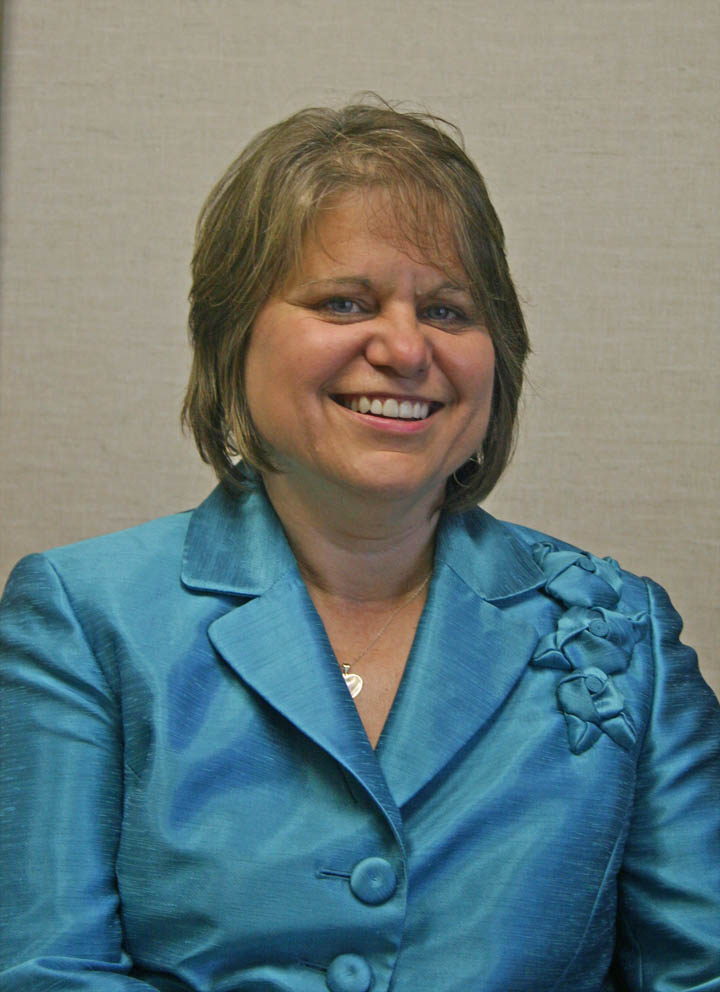College News
CCCC in Chatham - growing and serving
Notice: This article is older than 12 months. Names, contact information, programs, titles, etc. might have changed. If you have any problems please call the main college number, 1-800-682-8353, and we will be happy to direct you accordingly.
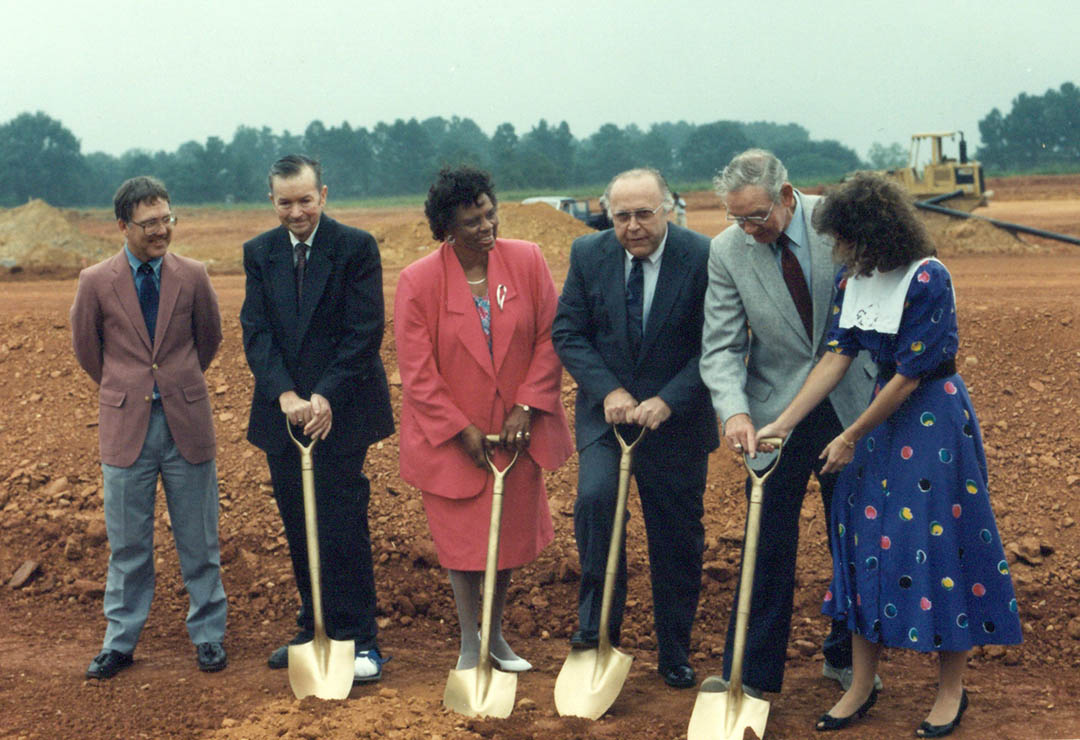
click image to enlarge ⊗
Central Carolina Community College representatives and Chatham County officials break ground for the ... (more)
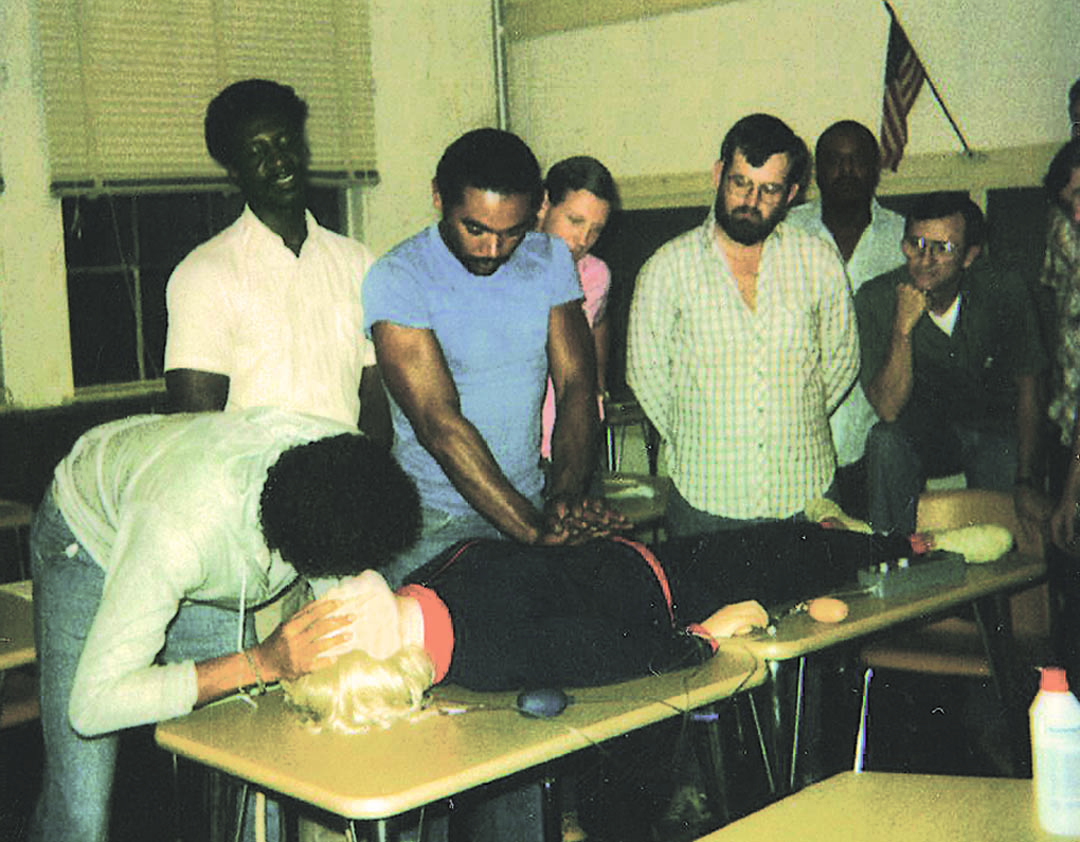
click image to enlarge ⊗
Central Carolina Community College has been serving students in Chatham County since 1964. It occupied ... (more)
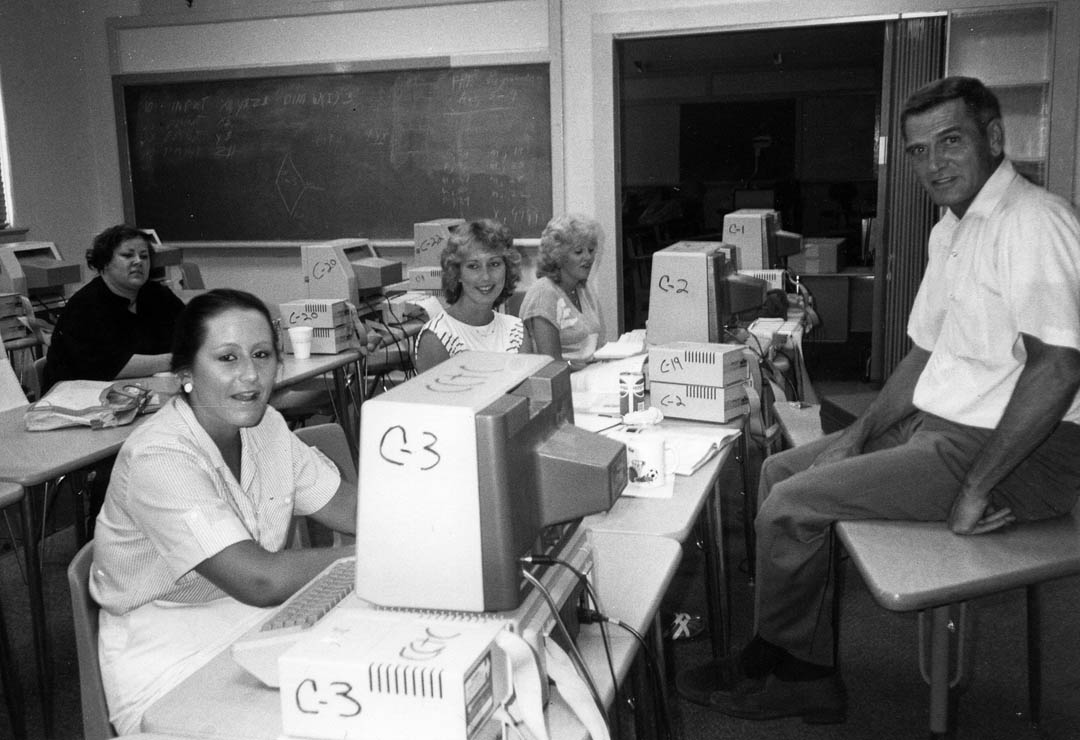
click image to enlarge ⊗
Central Carolina Community College has been serving students in Chatham County since 1964. It occupied ... (more)
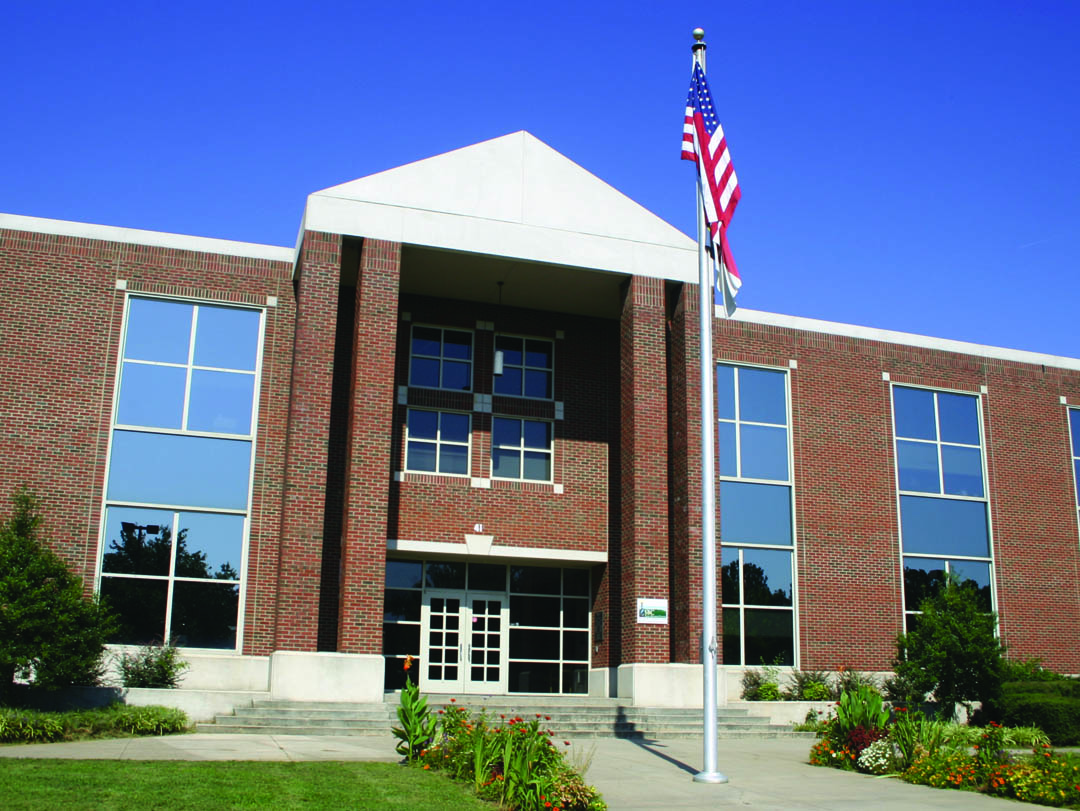
click image to enlarge ⊗
The Administration/Classroom Building at Central Carolina Community College's Chatham County Campus, ... (more)
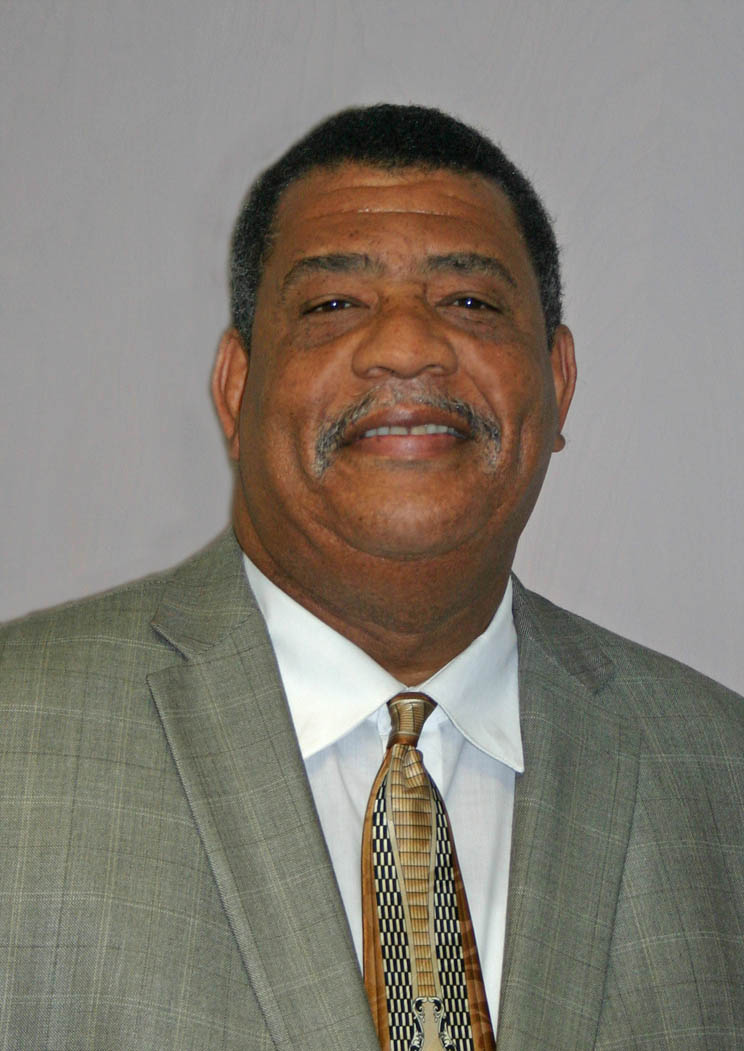
click image to enlarge ⊗
Carl Thompson, Former Chatham County Commissioner, former CCCC trustee, and current CCCC-Chatham Director ... (more)
04.12.2012 • College & Community • Special Events
PITTSBORO - Modern buildings, exciting programs, and successful students typify Central Carolina Community College in Chatham County today. It is hard to imagine that, less than 50 years ago, there was no CCCC in Chatham.
The college, then known as the Lee County Industrial Education Center, offered its first adult extension classes in Sanford in 1961. Starting in 1964, some adult basic education and vocational extension classes were offered in Chatham.
From that small beginning, with the hard work and dedication of many people, the college in Chatham has grown. Physically, from classes given in a variety of locations, it now has a campus in Pittsboro, as well as the Siler City Center and ceramics studio in Siler City.
From the first classes offered, there are now many continuing education and curriculum programs that award a certificate, diploma or associate degree, as well as enrichment classes. It has become a recognized leader in the area of sustainable education.
In 1975, the college hired Jim Turner, a Sanford Central High School teacher, as the first full-time coordinator of programs in Chatham County.
"There are wonderful people in Chatham County," Turner said. "[Back in the 1960s and 1970s,] the college had to build a presence, step by step. I felt I was part of the right steps at that time. To reach where we are now, there had to be a lot of support for the school."
In 1976, the Chatham County Board of Education provided the Paul Braxton School for the college's use. Vocational and academic, literacy, and community enrichment classes were offered there and elsewhere.
"A lot of people don't have hopes and dreams," Turner said. "In Chatham County, the college was the source of dreams for a lot of people. We've been able to bring opportunities to their doorstep. That's neat."
In 1984, Charles White, then a Jordan-Matthews High School teacher, became the Chatham coordinator, creating and starting new classes and promoting the college to county leaders and residents. He later became the college's first Chatham provost, serving until 1996. Also in 1984, the college moved from Paul Braxton to Henry Siler School, also in Siler City.
In 1985, the State Board of Community Colleges designated the college as the sole provider of community college services for Chatham County. White developed a slate of 35 curriculum courses, from business and computers to industrial management, to be offered in addition to the continuing education classes.
The life of Carl Thompson, of Bear Creek, has been closely connected to CCCC in Chatham since the 1970s as a Chatham County commissioner, college trustee, and employee. At age 24, in 1978, he was elected to the board of commissioners. He wanted to see more educational opportunities, including a university transfer program, provided by the college in Chatham. As a commissioner, he talked to White many times about increasing the college's presence.
"Charles did an excellent job of getting the word out about what the college offered," Thompson said. "He was willing to go anywhere and talk to anybody. It was critical that we had his presence."
In 1986, for the first time, Chatham County got a voice on the college's board of trustees when the county board of commissioners appointed Carl Thompson (1986-1991) and Earl Thompson (1985-1993) to the board. Both wanted to see a college facility in Chatham.
Dr. Karen Allen, the college's Chatham County provost since 1996, remembers the challenges of the late 1980s. She came to the college in 1988 as director of Continuing Education under White, who was then dean of CCCC's Chatham County operations. Both worked hard to expand programs and enrollment.
"It was an exciting time," Allen said. "There were just a few of us and we had the whole county to map and do needs assessments. We saw a lot of growth and that helped us establish the need for a new campus and a bond to finance it."
As a college trustee and commissioner, Thompson promoted the idea to the commissioners for a bond issue for the college to build a permanent facility. The referendum for a $2 million bond was held May 8, 1990.
White recalls putting up signs all over the county, urging the public to vote for it.
"About 2:30 a.m. on Election Day, I was still sticking up signs - it was just me and the full moon out," White recalled, then added with a smile, "The bond passed by a 2.5-1 margin. Now, it makes me feel good to go by and see the campus."
The next challenge the commissioners faced was where to locate the facility. Two of the commissioners wanted it in Siler City; two wanted it in Pittsboro. Carl Thompson held the deciding vote.
"I live in the western part of the county," he said, "but Chatham is a large county and I felt that locating it in Pittsboro would made it equidistant for most residents, so I cast my vote for Pittsboro."
The college wanted to locate on 43 acres off U.S. Highway 64 West. Pittsboro residents Thomas and Jean Reeves owned the property.
"We didn't have enough to buy it, but county commissioner Earl Thompson asked them to help the college," recalled Dr. Marvin Joyner, CCCC president from 1983 to 2004. "They sold us what we could buy with the money we had and gave us the rest as a gift. That campus would not exist without them."
Carl Thompson left the board of commissioners in December 1990. In 1996, he accepted a position at the college and, in 2007, became the director of Continuing Education in Chatham County, a position he still holds. From 2006-2010, he served another term on the board of commissioners.
"It's unfathomable to think what Chatham County would be like without CCCC's presence," Thompson said. "There would be a huge void."
At the new campus site, the first building, housing administration and classrooms, opened in 1992, followed by another in 1996. The college continued to use the old Henry Siler building until 2010, when the Siler City Center was completed.
That same year, the college's Sustainable Technology Center and the joint college-county Chatham Community Library opened on the Pittsboro campus. All three buildings are constructed to high Leadership in Energy and Environmental Design (LEED) standards.
CCCC has thrived in Chatham County. Allen credits that to its close partnerships with the community.
"When I became provost, I wanted this college to be very much in tune with the community," Allen said. "We've been able to do that successfully and make a difference in our economic development. When the local Economic Development Corporation did a needs assessment study, a lot of their needs revolved around what we do at the college. That reinforced my feeling that we've done a good job of assessing the community's needs - it was bottom up. We built what the community needs, rather than what just the institution wanted."
Chatham is the college's "greenest" campus, with its LEED-certified buildings, solar arrays, and various sustainability-focused programs. When it started offering the Associate in Applied Sciences in Sustainable Agriculture in 2002, there wasn't a similar associate degree program in the nation. Allen credits the community-centered focus with bringing this about.
"I couldn't have told you what sustainable farming was when I came," she said. "The program came from listening to and mapping the needs of the community. Out of sustainable agriculture came biofuels, sustainable technology, ecotourism, green building, and now, culinary arts. All grew out of the community's interest in agriculture. They have helped to establish Chatham County as a key player in the sustainable movement."
Other programs, such as the award-winning theater productions put on by drama students and the ceramics program, also reflect the interests of the community.
"I feel really good that, as CCCC-Chatham, we've truly lived up to our mission to be a catalyst for our community in economic, community and personal development," Allen said. "We not only have programs which match well to the employment needs in the county, but we also enhance the quality of life in our community with assets such as the walking trail, disc golf course, the beautiful Chatham Community Library, and the JobLink Career Center."
Then she smiled and added, "But there's always more work to be done."
The college has come a long way in Chatham County in less than 50 years. Because of the strong roots and healthy growth of the past and present, the future holds the promise of an even more abundant harvest of educational opportunities and community involvement.
Categories
- Admin, Faculty & Staff Category
- Arts & Entertainment Category
- Clubs Category
- College & Community Category
- College General Category
- Continuing Education Category
- Curriculum Programs Category
- Distance Education Programs Category
- Facilities/Buildings Category
- Finances Category
- Foundation Category
- Graduations Category
- Lee Early College Category
- NCCCS Category
- SGA Category
- Special Events Category
- Sports Category
- Students/Graduates Category
- Uncategorized Category
Archives


